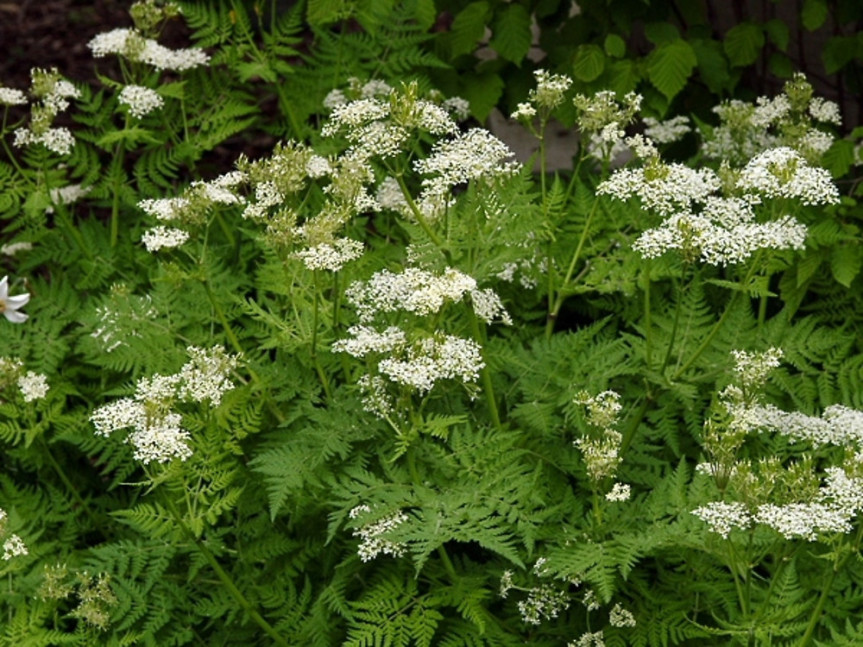Now that we’re officially into Fall, one can’t help but see spiced everything (Yay!), and I mean literally everything! Yet although I am loving all the spice, I know it can all get to be a bit much. So rather than talking about yet another ‘spicy’ oil, we’re going to shift the focus onto an oil that compliments all those spicy ones quite well, but this oil itself is rather sweet and smells like licorice- Anise. Not to be confused with Star Anise (Illicium verum), Anise, or Aniseed essential oil is steam distilled from the dried ripe fruit and seeds of the herb Pimpinella anisum (also known as P. vulgare and P. officinale).
Anise, which is part of the fennel and parsley family, is an annual herb that grows to about 2′ tall. It has feathery leaves, much like coriander, and yellowish-white flowers. The plant is originally from the Orient, but has since been cultivated in the Middle East, Egypt and the Mediterranean, as well as France, Russia and Spain. Over time it was also introduced to Northern Europe and North America.
The Romans used to use Anise as a digestive aid, the Greeks used it as a calming herb for the digestive system. The Egyptians added it to their barley and millet bread- I don’t know about you, but that sounds incredibly delicious!
When it comes to Aromatherapy, this rather warm essential oil is quite useful in helping ease some of the discomfort of fearful and introverted people, boosting the lungs, easing migraines and headaches as well as aiding digestion.
Precautions: Aniseed essential oil is very potent and can cause dermatitis in some individuals. It’s best avoided in people with sensitive skin as well as skin conditions. In large doses it can slow down the circulation and can cause cerebral congestion. It should be avoided during pregnancy and not be used on children under 2 years of age.
Besides the uses already mentioned, Anise essential oil can be useful as an expectorant and in dealing with Asthma and Bronchitis. While this oil generally isn’t used in any kind of skincare, it can be helpful when dealing with head Lice. And since Aniseed is such a soothing, warm essential oil, it also proves very helpful for people with Rheumatism and Arthritis, as well as general muscle cramps. It’s benefits to the digestive system are by far the most notable though, along with it’s ability to stimulate circulation.
Aniseed essential oil doesn’t seem to be a very popular oil to use, perhaps in part due to the smell, since licorice is one of those smells you either hate or love.
What are your thoughts on the smell of Aniseed, do you hate it or love it?
